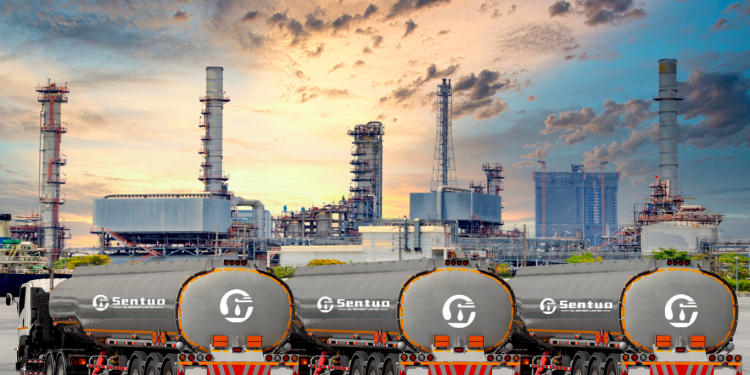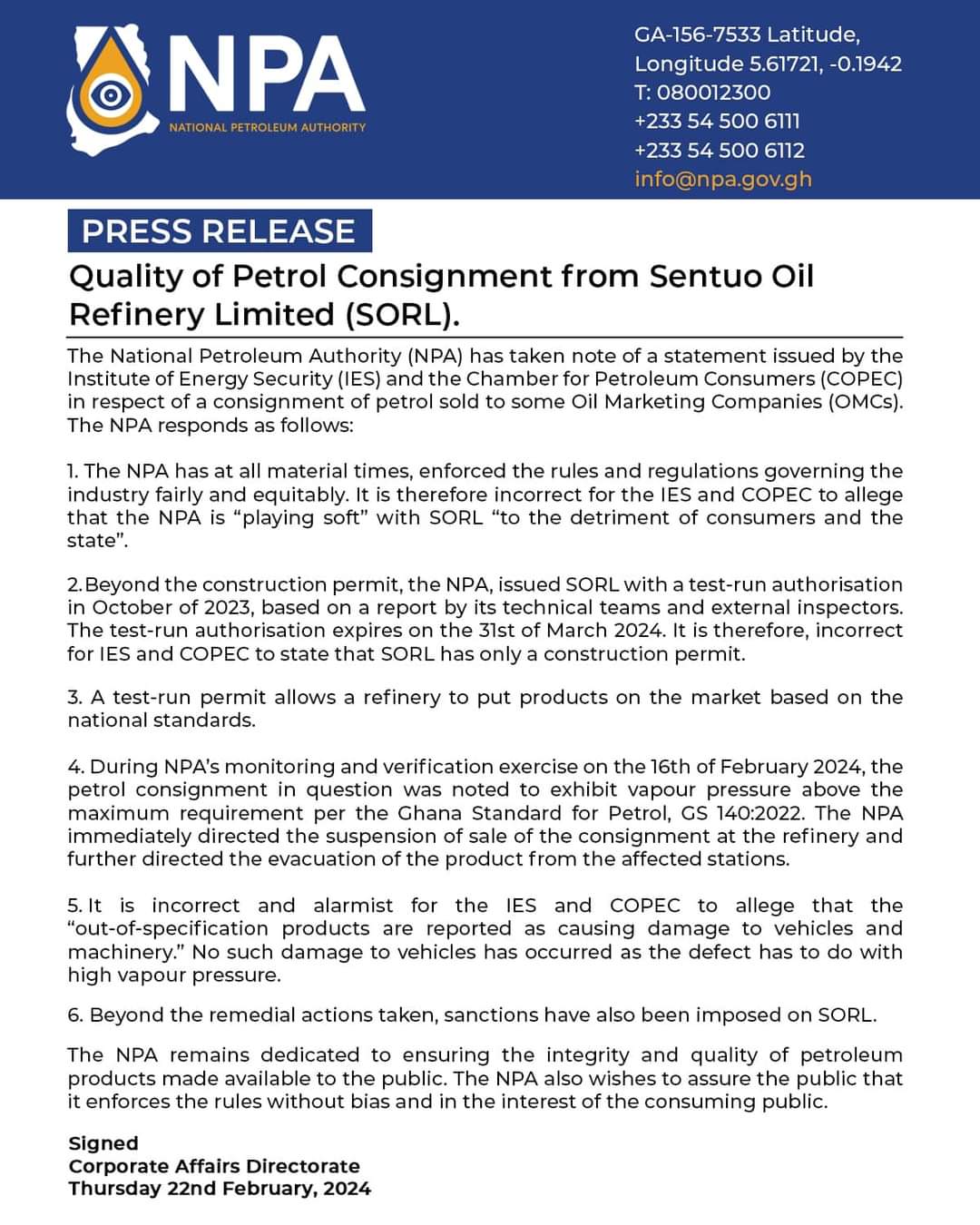NPA suspends sale of Sentuo Oil Refinery fuel over quality concerns

The National Petroleum Authority (NPA) has suspended the sale of fuel supplied by the Chinese-owned Sentuo Oil Refinery due to alleged substandard quality.
This decision follows calls from the Chamber of Petroleum Consumers (COPEC) and the Institute for Energy Security (IES) for the Authority to halt the operations of the Oil Refinery due to alleged illegal activities.
In a statement, COPEC and IES expressed concerns about the refinery’s operations without the necessary permit from the NPA, and the alleged supply of substandard fuel to the Ghanaian public.
The statement further explained that, as per the NPA Act 2005, all entities engaged in commercial activities in the downstream sector of the industry are required to obtain a permit from the board before operation.
Despite this, COPEC and IES maintain that Sentuo has failed to secure the necessary permits for oil processing and trading.
Ubeidalah Saed, the Head of Quality Control at the NPA, revealed in an interview with Umaru Sanda Amadu on Eyewitness News on Citi FM on Thursday that they are currently assessing the products supplied to various filling stations.
He also mentioned that the Authority is in discussions with the Refinery to determine the next steps.
“We are still having discussions with them as to what really led to that because the normal modus operandi of the NPA Quality Assurance system is that we grant you approval based on the values of the certificate then we follow up physically just to do a random check just to ascertain that indeed the purported quality on the paper i what it is.”
“We have suspended the sale of that particular product…Particularly we are looking at all the filling stations that have been affected. We will be able to get the total outlook and come and make a very meaningful conclusion.”
Meanwwhile the NPA in a statement issued on Thursday noted that it was incorrect and alarmist for the IES and COPEC to allege that the “out-of-specification products are reported as causing damage to vehicles and machinery.”
“No such damage to vehicles has occurred as the defect has to do with high vapour pressure,” it added.





